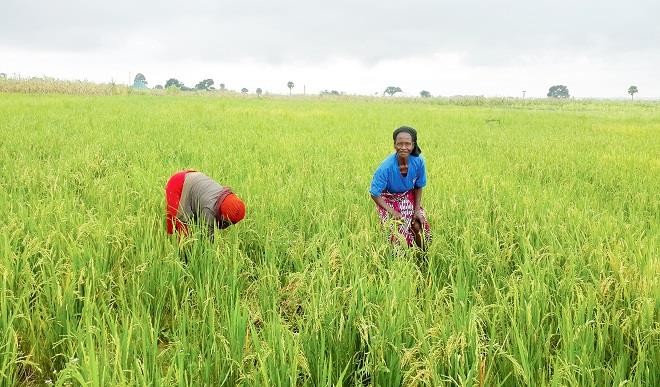Challenges of female commercial farmers
Mrs Amina Bitrus has been farming commercially for the past 55 years. “My parents did not send me to school but to the farm. From a tender age, I have benefitted greatly from farming. I have been able to buy a personal farmland for one million naira, buy a house we live in, feed and […]


Mrs Amina Bitrus has been farming commercially for the past 55 years. “My parents did not send me to school but to the farm. From a tender age, I have benefitted greatly from farming. I have been able to buy a personal farmland for one million naira, buy a house we live in, feed and cater for my entire family from my farming business,” she said enthusiastically.
Bitrus who owns Poly Farms, Narayi in Kaduna State has more than 20 hectares of farmland she rents and owns where she plants rice, maize, soya beans, beans, millet and guinea-corn every year. Her harvests are usually from 100 bags and more on each grain she plants yearly.
However, with this big farmland both in the city and the village, her challenges have been enormous.
“Due to lack of fertiliser, this year, I planted rice in five hectares, maize in five hectares and soya-beans in two hectares. After much delay, I only got two bags of fertiliser at 4,000 naira. I could not use it because I got it late and as a result, I only got 30 bags of rice this year instead of about 100bags. Also, I got only 30 bags of maize instead of more than 200 bags I got in the past,” Bitrus lamented.
Mrs Mary Mathew also farms commercially. Mary previously worked in the banking sector for 10 years before going into farming. “You can be educated, have a job and still go into agriculture. The experience I acquired while working in the bank has helped me to manage and improve on my farm for the past 25 years,” Mathew said.
“Out of farming, I have sponsored my four children from primary school to tertiary level, feed my family, built a house of 12 rooms in Abuja and have started another business in Lagos,” she recalls.
Mathew farms millet, maize, rice, beans, and soya beans and supplies markets mainly in the east.
However like Bitrus, Mathew’s major challenge is lack of access to fertiliser and loans to expand her business.
“The period I needed fertiliser to apply to the crops passed before I got it and at N11, 000 instead of N3, 500 which we got it formally. This has led to low harvest and possibly no profit,” she said.
“We want the government to provide fertilisers and pesticide in time, good species of seeds to plant, set aside a loan scheme to support, and encourage farmers. We have been struggling alone for a long time and I plead with the government to help us out,” Mathew pleads.
The Minister of Agriculture and Rural Development, Chief Audu Ogbeh, speaking at National Cooperative Financing Agency Of Nigeria (CFAN) summit held in Abuja recently said his ministry would help women and co-operatives to access the N220 million CBN Micro Small and Medium Enterprises (MSMEs) funds.
The minister who was represented by the Director of Agribusiness in the ministry, Alhaji Azeez Muyiwa, said 60% of the fund is dedicated to women and the loans can be gotten at 10 percent interest rate.
“You must know that the CBN working with Rural Finance Institution Building Programme (RUFIN) has the MSME fund of N220 billion naira out of which 60% is dedicated to women. So the minister has assured that he will support co-operators and women to access this fund, so that they can use it for production, processing and marketing and thereby increase our agricultural exports and agricultural production,” Muyiwa said.
Muyiwa added that women can access these funds through various cooperatives and also as individuals.
On the issue of access to fertilisers, our investigation reveals that federal government started distributing fertilise through the Growth Enhancement Scheme (GES) last week. It is coming at the wrong time when farmers are already harvesting their crops, raising concerns of low yield and placing women, who constitute the bulk of smallholder farmers across the country in difficult position as many of them cannot afford the high cost of input.
The Director of Farm Input Supply at the Federal Ministry of Agriculture and Rural Development, Engineer Ohiari Badmus Jatto however attributed the delay in early supply of farm inputs to delay in budget passage and the huge debts owing agro-dealers during the Jonathan’s administration and inherited by the Buhari’s government.
Sources at the ministry also told Daily Trust that not all registered farmers are also benefiting from the support this year stressing that only 4 to 5 million farmers would benefit from the support.
Whether Amina Bitrus or Mary Mathew will benefit from this, only time will tell.
